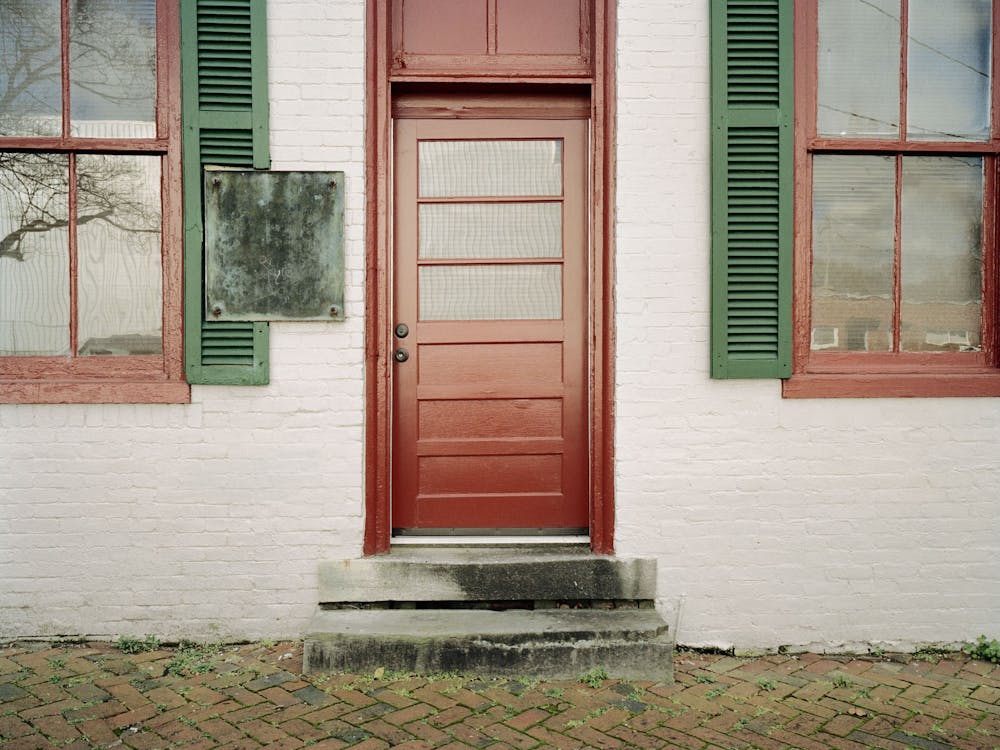On Thursday, Feb. 20, the Center for Documentary Studies held a book launch for photographer Jessica Ingram’s “Road Through Midnight: A Civil Rights Memorial.” Despite the numbing February snow, dedicated friends and colleagues kept warm with wine, cheese and camaraderie.
The CDS embodies a supportive home in the middle of a campus seemingly abandoned by empathy; throughout the reception, visitors joked about generational gaps and the death of printers and discussed the meaning of community. In Ingram’s talk, she revealed the value of preserving unrecognized archives and oral histories — of embracing stories of oppressed communities.
Ingram has been featured in several magazines and museums, including the traveling “Southbound” exhibit and the “Southern Accent” exhibit at the Nasher Museum. In “Road Through Midnight,” the photographer pairs images of Southern landscapes with FBI files, family files, local library files and microfiche from journalists to reveal the stories of civil rights activists and victims of racist violence.
“Road Through Midnight” is the latest book in the Documentary Arts and Culture series created by UNC Press with the Center for Documentary Studies at Duke. Over the past 10 years, this series has documented unheard stories through books and audio publications that illustrate the varied perspectives of documentarians.
Ingram was inspired by historical markers, and how certain histories go unacknowledged when there are no markers to tell them. She recalled one investigation into a Ku Klux Klan rally in Pulaski, T.N. No other journalist would cover the topic — they didn’t want to bring attention to the rally. Six years later, a Pulaski townsperson who works in local archives helped her find a re-bolted, backward-facing plaque stating that the Klan was organized in that law office.
“The residents were very clear that this [change] is not necessarily about shame, this is about rejection,” Ingram said. “This is about wanting to change the course of a way that they are known. I feel like this is an important distinction; shame is not a very active response, it’s sometimes immobilizing. But rejection is a really active response. It’s saying no, saying we’re not ignoring this, but we’re also not promoting this.”
Re-examining historical markers is not only about rejecting symbols of white terrorism, but telling stories of black resistance. Ingram recorded oral histories about overlooked civil rights protestors to share their stories with a wider audience. She presented the story of Vernon Dahmer, for example, an NAACP leader whose house was firebombed by the KKK in 1966. She included a telegram President Lyndon B. Johnson sent Mrs. Dahmer following the attack. Some stories, however, didn’t receive news coverage or national attention, and oral histories and microfiche are responsible for their preservation.
“One goal of mine of the book was to really preserve parts of this archive. I found that in some cases, like the Civil Rights Summer Murders, there’s only one copy of that newspaper left, and it’s very hard to see,” Ingram said. “I started thinking about this archive and the nature of it. What’s left of it? What condition is it in? How do you preserve it? So part of the design decisions in this book were about having and preserving these archival materials available for the public.”
Ingram uses certain aesthetic decisions to correct whitewashed narratives. In newspapers of the Civil Rights era, there was little focus on resistance leaders. “Road Through Midnight” references these papers with a tri-column text layout, but switches the perspective by placing white text on a black page.
“Throughout the book you have these narratives about individuals involved in resistance or who were victims of racist violence,” Ingram explained. “These narratives really foreground the person who was the victim of the atrocity or the person who was leading the resistance in deliberate aversion to the newspaper articles of the time, which often foregrounded the white racist perpetrator.”
Unlocking these stories is essential for a complete understanding of Southern and American history, but it can also be risky; uncovering information about past murders means essentially re-opening sensitive cases. The families that shared this information though, cared more about sharing the truth than hiding their vulnerability.
“I wouldn’t say that people were resistant [to sharing] but relationships had to be created,” Ingram said. “I was always surprised and honored by the openness of families, many of which were adamant about knowledge being shared. These legacies persist into contemporary justice, prison and even education systems. If you don’t share this knowledge, you could end up in another kind of civil war.”
Correction: A previous version of this article mischaracterized Ingram's investigation of the Ku Klux Klan rally in Pulaski, T.N. The Chronicle regrets the error.
Get The Chronicle straight to your inbox
Sign up for our weekly newsletter. Cancel at any time.

